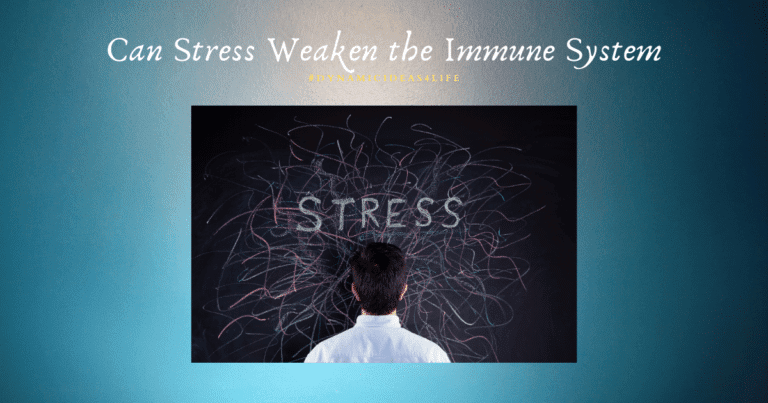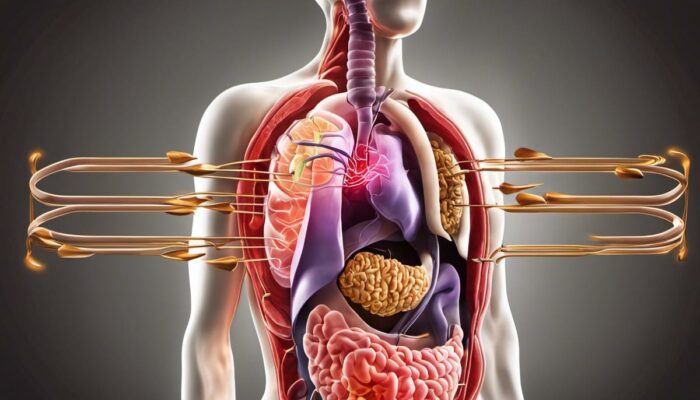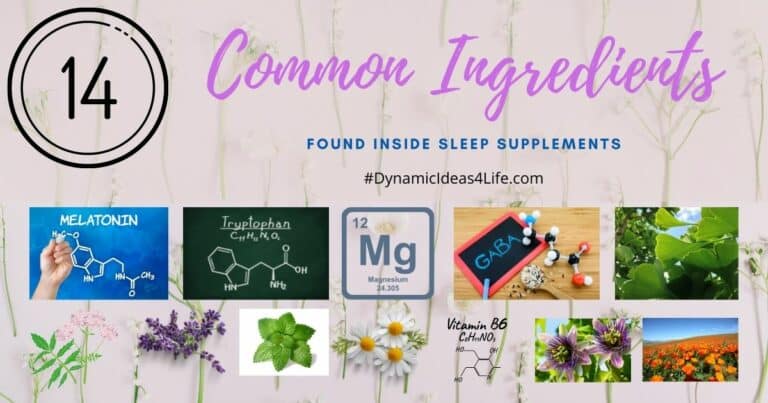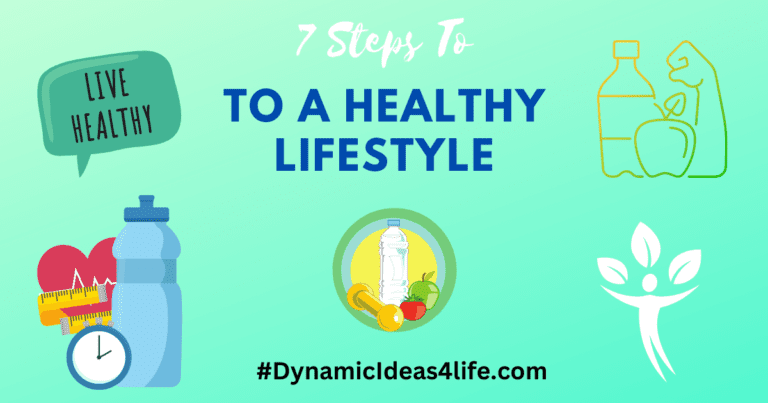Colon Cleansing has become a popular topic of discussion in recent years, especially for individuals suffering from Irritable Bowel Syndrome (IBS) and Inflammatory Bowel Disease (IBD). These conditions can cause a range of uncomfortable symptoms, including;
- abdominal pain,
- bloating,
- diarrhea,
- and constipation.
For this reason, many people are turning to colon cleansing as a potential solution for relief from these symptoms. In this article, we will explore the role of Colon Cleanse for IBS and IBD relief, the different types of methods available, the benefits and risks associated with this, and how it can be used in conjunction with other treatments for a wide range of health benefits.
So if this is something that interests you then please keep reading. Now…
Colon Cleanse for IBS and IBD Relief
– Can This Actually Help?
This is a good question. Whilst both conditions are not the same still they can make life very difficult for people with these problems. There are plenty of options available including dietary modifications, lifestyle changes, and various therapies for IBS and IBD respectively although certainly another thing to try is a Colon Cleanse – either by taking Colon Cleanse Supplements or an actual colonic procedure.
Understanding IBS and IBD: Symptoms and Causes
So, as mentioned above both are different things. IBS is a common gastrointestinal disorder that affects the large intestine. It is characterized by a variety of symptoms, including abdominal pain, bloating, gas, diarrhea, and constipation.
The exact cause of IBS is unknown, but it is believed to be a combination of factors, including abnormal muscle contractions in the intestines, increased sensitivity to pain in the digestive system, and changes in the gut microbiome.
On the other hand, IBD refers to a group of chronic inflammatory conditions that affect the digestive tract. The two main types of IBD are Crohn’s disease and Ulcerative Colitis. Symptoms of IBD can include abdominal pain, diarrhea, rectal bleeding, weight loss, and fatigue.
The exact cause of IBD is also unknown, but it is thought to involve an abnormal immune response in the gut, genetic factors, and environmental triggers.
The Role of Colon Cleanse in IBS and IBD Treatment
Colon Cleanse is believed to help with IBS and IBD symptoms by removing toxins and waste buildup from the colon. It is thought that this can help improve digestion, reduce inflammation in the gut, and promote a healthier gut microbiome.
However, it is important to note that the scientific evidence supporting the use of colon cleanse for IBS and IBD relief is still limited. I would say it depends on the supplement and/or the facilities used but this is only my opinion. I shall expand on this further in my conclusion for this article.
Some studies have suggested that colon cleanse may have a positive effect on IBS symptoms, such as reducing abdominal pain and improving bowel movements. However, these studies are small and have limitations, so more research is needed to fully understand the benefits of colon cleansing for IBS and IBD.
What is Colon Cleanse and How Does it Work?
Colon Cleanse also known as colon hydrotherapy or colonic irrigation, is a procedure that involves flushing out the colon with water or other liquids. This is typically done using a tube inserted into the rectum, which allows the liquid to flow into the colon and then be expelled.
The idea behind Colon Cleanse is that it can help remove waste buildup and toxins from the colon, promoting better digestion and overall gut health. It is believed that this can help alleviate symptoms of IBS and IBD by reducing inflammation in the gut and improving the balance of bacteria in the gut microbiome.
Types of Colon Cleanses to Choose From?
There are several different types of colon cleanse methods available, each with its own pros and cons.
The most common types include:
1. Colon Hydrotherapy
This involves using a machine to flush water into the colon through a tube inserted into the rectum. The water is then expelled, along with any waste buildup in the colon.
2. Enemas
Enemas involve using a liquid solution, such as water or saline, to flush out the colon. This is typically done using a small bulb syringe or an enema bag.
3. Colon Cleanse Herbal Supplements
Some people choose to use herbal supplements or teas as a form of colon cleansing. These supplements often contain prebiotic ingredients such as psyllium husk, cascara sagrada, or senna leaf, which are believed to have laxative effects, help with the natural growth of probiotics and naturally eliminate toxic waste in the colon itself.
When choosing a colon cleanse method, it is important to consider factors such as personal preference, comfort level, and any underlying health conditions.
It is also recommended to consult with a healthcare professional before starting any colon cleanse regimen.
Benefits of Colon Cleanse for IBS and IBD Relief
While the scientific evidence supporting the use of colon cleanse for IBS and IBD relief is limited, some individuals have reported experiencing benefits from this practice. These potential benefits include:
1. Improved Bowel Movements
Colon cleansing may help regulate bowel movements and alleviate symptoms of constipation or diarrhea.
2. Reduced Bloating and Gas
By removing waste buildup from the colon, colon cleansing may help reduce bloating and gas.
3. Improved Digestion
Colon Cleanse is believed to promote better digestion by removing toxins and waste from the colon.
4. Reduced Inflammation
Some studies have suggested that colon cleanse may help reduce inflammation in the gut, which can be beneficial for individuals with IBS or IBD.
In addition to these potential benefits, colon cleansing may also have other health benefits. Some of these may include;
- Improved Energy levels,
- Clearer Skin, and
- Weight Loss.
However, it is important to note that these benefits are anecdotal and more research is needed to confirm their effectiveness.
Risks and Side Effects of Colon Cleanse
While colon cleansing may have potential benefits, it is not without risks and side effects. Some potential risks and side effects to be aware of include:
- Dehydration: Colon cleanse can cause fluid loss, which can lead to dehydration if not properly managed.
- Electrolyte Imbalances: The flushing out of fluids can disrupt the balance of electrolytes in the body.
- Infection: There is a risk of infection if the equipment used for colon cleansing is not properly sterilized
- Perforation or Injury: In rare cases, colon cleanse can cause perforation or injury to the colon, especially if done improperly or by an inexperienced practitioner.
So, for all these reasons it is important to note that colon cleansing is not recommended for everyone. Individuals with certain health conditions, such as diverticulitis, ulcerative colitis, or Crohn’s disease, should avoid colon cleansing as it can worsen their symptoms.
Pregnant women and individuals with a history of colon or rectal surgery should also avoid colon cleanse.
Preparing for Colon Cleanse: Tips and Guidelines
Before starting a colon cleanse regimen, it is important to properly prepare to ensure a safe and effective experience. Before you begin one fundamental thing that you really must do is your research. Read reviews and find out as much information as you can about companies offering these services before you begin but also you may consider;
1. Consult with a Healthcare Professional
It is recommended to consult with a healthcare professional before starting any colon cleanse regimen, especially if you have any underlying health conditions or are taking medications.
2. Stay Hydrated
It is important to drink plenty of water before, during, and after a colon cleanse to prevent dehydration.
3. Follow a Healthy Diet
Prior to a colon cleanse, it is recommended to follow a healthy diet that includes plenty of fruits, vegetables, whole grains, and lean proteins. Avoiding processed foods, alcohol, and caffeine can also be beneficial.
4. Avoid Certain Medications
Some medications, such as blood thinners or medications that affect bowel movements, may need to be temporarily stopped before a colon cleanse. It is important to consult with a healthcare professional regarding any medications you are taking.
During and after a colon cleanse, it is normal to experience changes in bowel movements and some discomfort. However, if you experience severe pain, bleeding, or other concerning symptoms, it is important to seek medical attention.
How Often Should You Do Colon Cleanse for IBS and IBD Relief?
The frequency of Colon Cleanse for IBS and IBD Relief can vary depending on individual needs and preferences. Some people may choose to do a colon cleanse once a month, while others may do it more or less frequently. However, It is important to listen to your body and consult with a healthcare professional to determine the appropriate frequency for you.
Factors to consider when deciding how often to do a colon cleanse include the severity of your symptoms, your overall health, and any underlying medical conditions.
It is also important to note that colon cleanses should not be used as a long-term solution for IBS or IBD.
It is best used as a complementary treatment alongside other lifestyle changes and medical interventions.
Combining Colon Cleanse with Other Treatments for IBS and IBD
Colon Cleanse can be used in conjunction with other treatments for IBS and IBD to help manage symptoms and improve overall gut health. Some examples of complementary treatments include:
- Dietary Changes: Making changes to your diet, such as avoiding trigger foods or following a low FODMAP diet, can help alleviate symptoms of IBS and IBD.
- Stress Management: Stress can worsen symptoms of IBS and IBD, so finding effective stress management techniques, such as exercise, meditation, or therapy, can be beneficial.
- Medications: Depending on the severity of your symptoms, your healthcare professional may prescribe medications to help manage IBS or IBD symptoms.
- Probiotics: Probiotics are beneficial bacteria that can help restore the balance of bacteria in the gut. They may be helpful for individuals with IBS or IBD. *Note also look for Prebiotic and Probiotic blends for better results.
Final Thoughts: Is Colon Cleanse Worth Trying for IBS and IBD Relief?
In conclusion, colon cleansing may have potential benefits for individuals with IBS and IBD, but the scientific evidence supporting its use is limited. While some individuals have reported experiencing relief from symptoms after colon cleanse, more research is needed to fully understand its effectiveness.
I personally do believe that Colon Cleanse can work. I am not sure what Hawaii is like for travel at the moment after recent events but this is one place you can go to for Colon Hydrotherapy. If I had the money this is where I would go – there are several places on the Island offering these services and apparently some of these places are like nowhere else.
I am not sure if there are any other parts of the world you can go to with good Colonics. I think maybe India might have a few places worth checking but anyway I’ve heard good things about some specialist places like those in Hawaii if you can afford it.
In Conclusion
In summary, colon cleansing is a topic of interest for individuals with IBS and IBD who are seeking relief from their symptoms. While the scientific evidence supporting its use is limited, some individuals have reported experiencing benefits from colon cleansing.
However, It is important to approach Colon Cleanse with caution and consult with a healthcare professional before starting any regimen. You should do your research first too before considering any colonic businesses or supplements. Some have very good reviews but some really should be avoided for good reasons.
By combining colon cleansing with other treatments and lifestyle changes, individuals with IBS and IBD may be able to find relief from their symptoms and improve their overall gut health.
I will end this article here but if you would like to read more you can do so by checking our page HERE<<<





Anxiety and Depression are you magnesium deficient best ways to lower blood sugar BiOptimizers blood pressure supplements blood sugar support supplements Digestive Enzymes Supplement digital products Dr Sam Robbins Erectile dysfunction Exercise Gut Health Healthy Living heart health HFL how to lower blood sugar levels How To Lower Cholesterol insulin resistance joint health supplement Keto keto dieting Keto Diet Weight Loss leaky gut supplements leptin resistance list Magnesium deficiency Matt Gallant mental health multivitamins Nootropics nutrient supplements Probiotics Probiotic Supplements proteolytic enzymes reverse type 2 diabetes stress and anxiety stress relief vitabalance vitapost Wade Lightheart weight loss articles weight loss diet plans weight loss product reviews weight loss supplements weight loss tea





